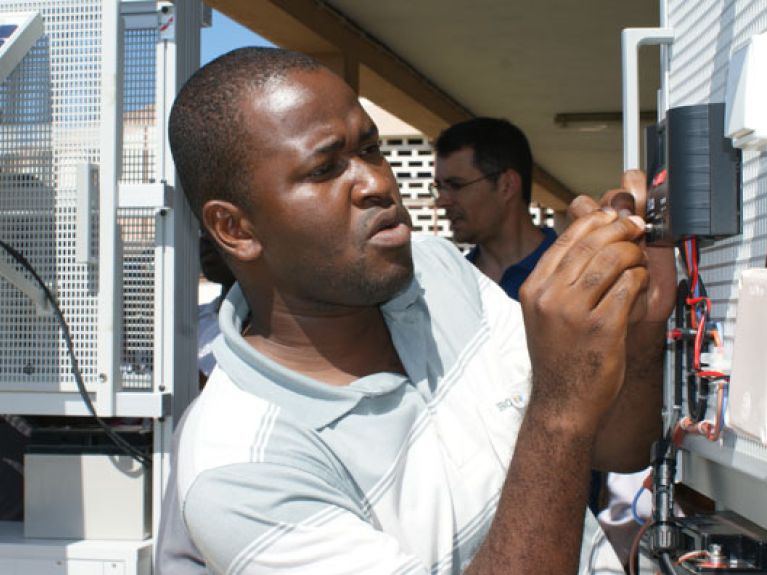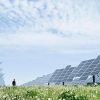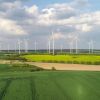Promoting renewables in Africa
The Berlin Renewables Academy supports African countries in developing renewable energies

While Germany discusses the exact form that the energy transition should take, developing and emerging countries in Africa are plagued by different concerns. In many sub-Saharan states in West Africa there is no universal and stable power supply. In the future, therefore, many countries are planning to establish laws and policy frameworks for a nationwide electricity grid. They could, for example, make use of the inexhaustible power of the sun.
The Berlin Renewables Academy (RENAC) supports this plan and supervises a programme called TREE (Transfer of Renewable Energy & Efficiency), funded by the Export Initiative for Renewable Energies of the Federal Ministry for Economic Affairs and Energy. It is aimed at members of government, energy agencies, administrative officials, utility companies, financial institutions, associations and members of non-governmental organizations. From Angola, Ghana and Kenya to Mozambique and South Africa, many African countries are taking part.
“In practice-oriented seminars, locally and in Berlin, and in online courses, we support public and private actors in building a functioning power infrastructure using renewable energy,” explains TREE project director Roman Buss. Sometimes he and his colleagues need to start with basic information. “In countries like Kenya or South Africa, on the other hand, renewable energies are no longer a groundbreaking novelty,” says Buss. Over the past few decades, he observes, Germany has built up a considerable wealth of experience. From these positive and negative experiences, other countries, and not least export-oriented German companies, could certainly benefit – here too RENAC sees one of its tasks. There are now numerous examples that speak for the success of the programme. Buss’s colleague Chris Vaneker tells of a seminar participant from Kenya who now wants to establish his own training centre for “green” energy in his homeland, modelled on the RENAC.
In addition to the TREE project, the 24 RENAC staff members in Berlin supervise numerous other initiatives on alternative energy sources – in 134 countries and with a total of 3,400 participants. “Our goal is to provide knowledge about renewable energy and energy efficiency worldwide – and to tailor this effort to the various target groups in their respective languages,” explains Berthold Breid, Executive Director of RENAC.
In 2008, when the Academy was founded, there existed no similar institution. Yet the need for professional training in this area was great. Breid knew this because he had been in charge of projects promoting photovoltaic and solar thermal systems in Berlin and worldwide for the German Energy Agency and the European Union. “Technological progress in the energy sector required new training concepts, but these were hardly developed in 2008.” In addition to studies and market research, the independent institution he founded offers seminars, lectures, workshops and training courses.
Participants work together independently of institutional and geographical bound aries and benefit from the experience of the other participants. “I’m constantly surprised at the synergy this leads to,” says the RENAC chief. He has made similar observations in the two international master’s degree programmes that his institution offers in cooperation with two universities in Berlin. Thanks to these programmes, the next generation is always on the cutting edge of “green” technology. ▪
Clara Görtz

